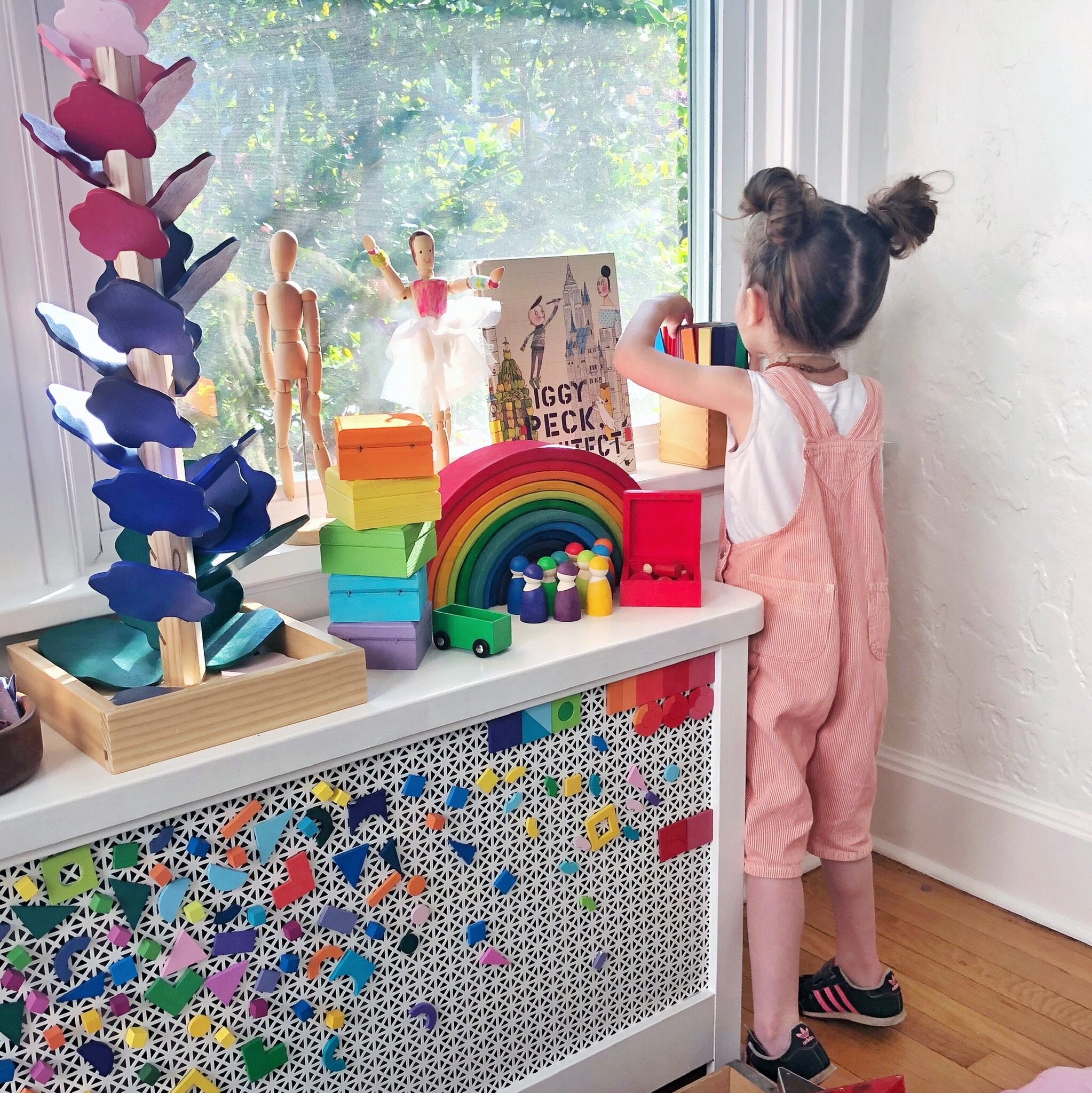How To Respond When Your Child Says, "I'm Stupid!"
/“I’m Stupid! I can’t do this!”
Does your child struggle when things become difficult for them? Maybe your kid occasionally struggles with homework when they can’t figure out the right answer to a math question. Or, maybe your toddler gets frustrated when they are building a tower out of blocks and it keeps falling, or when they are coloring and are having trouble staying in the lines…
Whatever the scenario, it's intense and painful to hear your child say these things about themselves. As a parent, it’s only human nature to want to immediately correct them and protect them from these feelings of self-doubt, but this can actually do more harm than good.
Before you swoop in to whisk those thoughts and words far far away...
Pause. Breathe.
Your child is frustrated. Something is hard for them and feels impossible for them to solve.
In this moment, you have two choices:
You can open the conversation, or
You can shut it down.
Here’s why choosing to open the conversation is the best option.
Connection vs. Correction
I know it can often feel like correction would be the best way to go when your child is having negative thoughts about themself. Wanting to tell them that they are not stupid and that they can do it is a normal response.
Correction in these situations though shuts the conversation down and leaves your child alone in their struggle, not sure how to navigate these feelings and the negative self-talk that they are experiencing. Correcting them will only teach them that they will always feel this way when placed in these situations.
Instead, strive to meet your child where they are in this moment of frustration and connect with them. Connection and understanding will help you to open up the conversation with your child, allowing for further inquiry about why they are feeling this way, and also allow for further support from you as the parent. Connection also encourages your child to believe in GROWTH. That there are other ways of doing things and that they can always become better.
Think of how you want to be encouraged when you are down on yourself… is it more helpful to you when someone says, “Why are you upset? You can do it.”, or, is it more encouraging when they say, “This seems like a hard thing. How can I help you accomplish this?”
Want another idea of how to support your child when they are struggling? Check out this blog post.
How to Respond When Your Child is Struggling
I know it can be difficult to come up with the “right” words to say to your child when they are upset, especially when your child is having negative self-talk. Next time your child is struggling, remember CONNECTION. This can sound something like:
When your child says: “This is too hard”...
Instead of: “No, it’s not. You can do it.”
Try: “Does it feel like you should already know how to do it?”
When your child says: “I’m stupid”...
Instead of: “No, you’re not! Don’t say that!”
Try: “It must feel like you’ll never get it right.”
When your child says: “I don’t know how”...
Instead of: “But I saw you do it yesterday!”
Try: “Sounds frustrating. Can I help you think it through?”
Remember that these scripts are meant to be “food for thought”. Parent in a way that feels most authentic to you. You are the best person to parent your own child!
Practicing connection instead of correction will pay off in the long run, too! Shutting down your child’s feelings will teach them to hide their feelings. Acknowledging your child’s emotions will let them know that you will always be there to encourage and be understanding of them, no matter the circumstances.
Will you choose correction or connection? Let me know in the comments below.
I hope you enjoyed this blog! If you want to keep up with more Workspace for Children content, follow along on Instagram by clicking HERE.
SUBSCRIBE TO MY NEWSLETTER
WANT TO SEE MORE BLOGS LIKE THIS ONE? GREAT! CHECK OUT THE POSTS BELOW!
CHECK OUT OUR EBOOKS!
THE PLAY PLAN
The Play Plan is an ebook containing play invitations that are easy to set up, inexpensive, and apply children of all ages. The 25 play prompts are divided into five categories and use items that you most likely already have at home. These play prompts consider children of all ages, all developmental stages, and all learning capabilities. Each prompt can be tailored to fit your unique child’s needs. Play is meant to be simple.
$28
QUIET TIME AND INDEPENDENT PLAY EBOOK
This downloadable ebook is your personal guide to Quiet Time and Independent Play. This ebook will teach you the basic steps to implementing a Quiet Time and Independent Play strategy that works. The guide teaches you my proven 5 step method for implementing a daily break without using screens. (Guide includes 5 bonus invitations to play.)
$27















Rescuing them from discomfort also robs them of resilience.